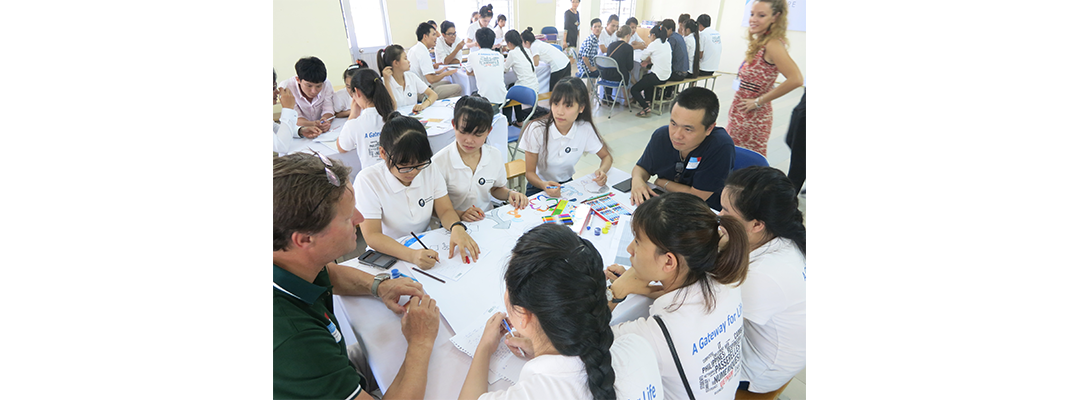How has PN Vietnam adapted to companies’ requirements and feedback as well as the most recent changes in education policies in Vietnam? We interviewed PN Vietnam’s Training manager to find out more.
In 2016, the Vietnamese government changed some education policies to promote and focus on vocational training nationwide with skill-based framework being the core of the training assessment.
To adapt to the new policies, PNV has also extended its training program from two to three years. As students enter their probation period or transition to full time positions upon graduation, surveys showed that IT firms were increasingly concerned about their IT grounding. The feedback from partner companies and supporters were the catalyst for the program renewal.
Ms Julie Tardieu, General Manager of PN Vietnam and Dr. Associate Prof. Phan Cao Thọ, Rector of Danang College of Technology signed MoU about college degree training

Through an exchange with Vinh, manager of the IT and training department, we are going to take a closer look at the new program and some of the expected impacts. Vinh used to work for an electronic company. As he was looking for something new and more challenging, he found out that Passerelles numériques Vietnam needed an IT coordinator through a former member of staff and decided to join the team. It’s been almost three years since this fortuitous encounter; Vinh now dedicates his experiences and knowledge to ensure the new program transitions smoothly.
Vinh explains: “For the first two years, the new curriculum combined building software, web development and testing. It can help students to have more substantial basic knowledge before starting the first internship. In the final year, students have a chance to decide which path they want to take as an IT technician, focus on self-development, as well as apply their technical skills in the second internship. Throughout the technical training period, students continued to receive educational and social support to ensure they are prepared and ready to enter the workforce.
Students discovered how to start, run and expand their own businesses through an introductory workshop

In addition, PNV wants to collaborate with more companies to design the most up-to-date teaching content. This will enable students to have relatively equal footing after graduation as other recent graduates from major universities. Furthermore, as Vinh explains, “we have implemented an introduction to entrepreneurship. In the long run, ideally we hope this course will encourage students to launch their own businesses”.
Looking back to the time when students just arrived, most of them do not have any background knowledge in computer science. Yet IT companies were often not fully aware of PNV’s efforts in training students from the beginning. Therefore, with three-years, PNV staffs and students will have more time to work with companies and “hopefully, more time means more trust”, Vinh disclosed.
Representatives from local IT firms participated in career workshop with our students

When Vinh was asked about some of the difficulties that he had faced and expected, he smiled shyly and answered: “there are three major obstacles that PNV training team and I expect. First, we’ll need more staff, teachers and trainers. The current trainers and teachers will need time to learn new topics and update their skills to incorporate new materials into their lessons.
The second challenge is to put students in contact with companies through projects. By working on various projects together, companies will have the chance to know PNV students and vice versa, while students will gain hands-on experiences while working with professionals.
Lastly, obtaining new material and supplies such as desktops and laptops for students remains one of the biggest challenges for us. As you can see, we rely heavily on the support from our partners and IT firms to move forward and expand our program.”
Thanks to PNV alumni, more and more companies are interested in supporting PNV and students, “but there is still a lot of work to be done, and we’ll need as much help and support as we can get to help more underprivileged Vietnamese students”.

